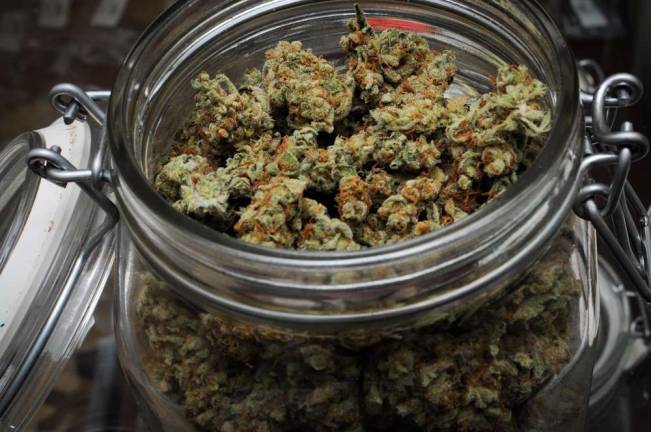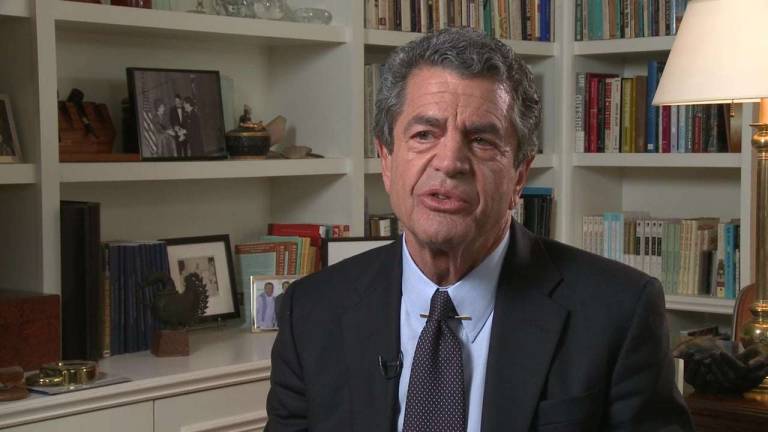Marijuana is not benign, addiction expert says


More than 50 years ago, Dr. Mitchell S. Rosenthal founded Phoenix House, which today operates scores of alcohol and drug abuse programs in nine states. He says we’re naïve about the potency of today’s marijuana and how it may harm young brains.
Ten states have legalized recreational use of marijuana and New York State could join them. What are your chief concerns about a trend that seems to be accelerating?
One major concern is the increased use and increased availability of the new marijuana, which is so much more powerful than the marijuana of 20 years ago. It’s a different beast, and that’s why I suggested that we pause and do a two-year moratorium to look at what has happened, and what is happening, in the states where there has been legalization.
How would you use that two years?
I would use it to ask questions, such as “What has happened to eighth graders? And to twelfth graders? What are the patterns?” There has been a big increase, a doubling of use, between 2002 and 2016, where there has been legalization.
Young people are a special concern of yours, aren’t they?
Marijuana is not a benign drug for adolescents. Kids who use marijuana regularly, it’s bad for their brains, bad for cognitive function. It’s a gateway drug for adolescents who are regular users. I started to get concerned about this 40 years ago, at Phoenix House, where I was seeing adolescents whose drug of abuse was marijuana, have their lives so undone, and become so socially disordered, that they needed to go into full-time residential treatment. And that marijuana was relatively weak.
Developing brains are vulnerable. There is already evidence from some of the research being done that there is actually structural change in the brains of regular users. I’m very troubled by that. And it’s not just 12- to 17-year-olds. You’ve got to look at 18- to 25-year-olds. If they are regularly using the kind of potent marijuana that is now available, they will get in serious drug trouble, too.
How do you view the increasing pace of the legalization movement?
There has been a kind of chain reaction of acceptance, and an insufficient amount of critical thinking. It’s ironic that more than 60 percent of Americans feel that marijuana is benign. We did a study at the Rosenthal Center in 2017 and found that parents would be happier if their kids were using marijuana than alcohol or cigarettes.
What do you think is driving the change in attitude about marijuana?
This is a new, promising big business, so big business is driving this. And you have lobbying by companies, in the states, to bring about legalization. And there has not been a lot written yet about adolescent brains and gateway phenomena and so forth. So marijuana is still enjoying a reputation of being safe.
Do you believe marijuana has legitimate medical applications?
I think that the evidence so far — the number of carefully done studies where you say “Hey, here is a condition and marijuana, or a derivative of marijuana, will be good for that condition” — is scant. In the future, however, I think there will be legitimate uses. Right now there are some seizure disorders where it seems promising. But the incidence of those seizure disorders is very small.
If you could speak directly to our elected leaders, what would you say?
I’d say, “Listen, you have been very careful about mental health issues, and issues involving children, and homelessness. Let’s pause here and take more of a look. I don’t think we need to rush into legalization. We have some medicalization going on in the state, it’s one of the more careful programs anywhere in the country. Let’s stay with that.”
Finally, the thing that is missing from the current marijuana debate is __________.
Caution. Because the train is moving so fast towards legalization, and commercialization, which is the turbocharger, I’m afraid that we will look back and see a lot of harm that nobody is thinking about right now.